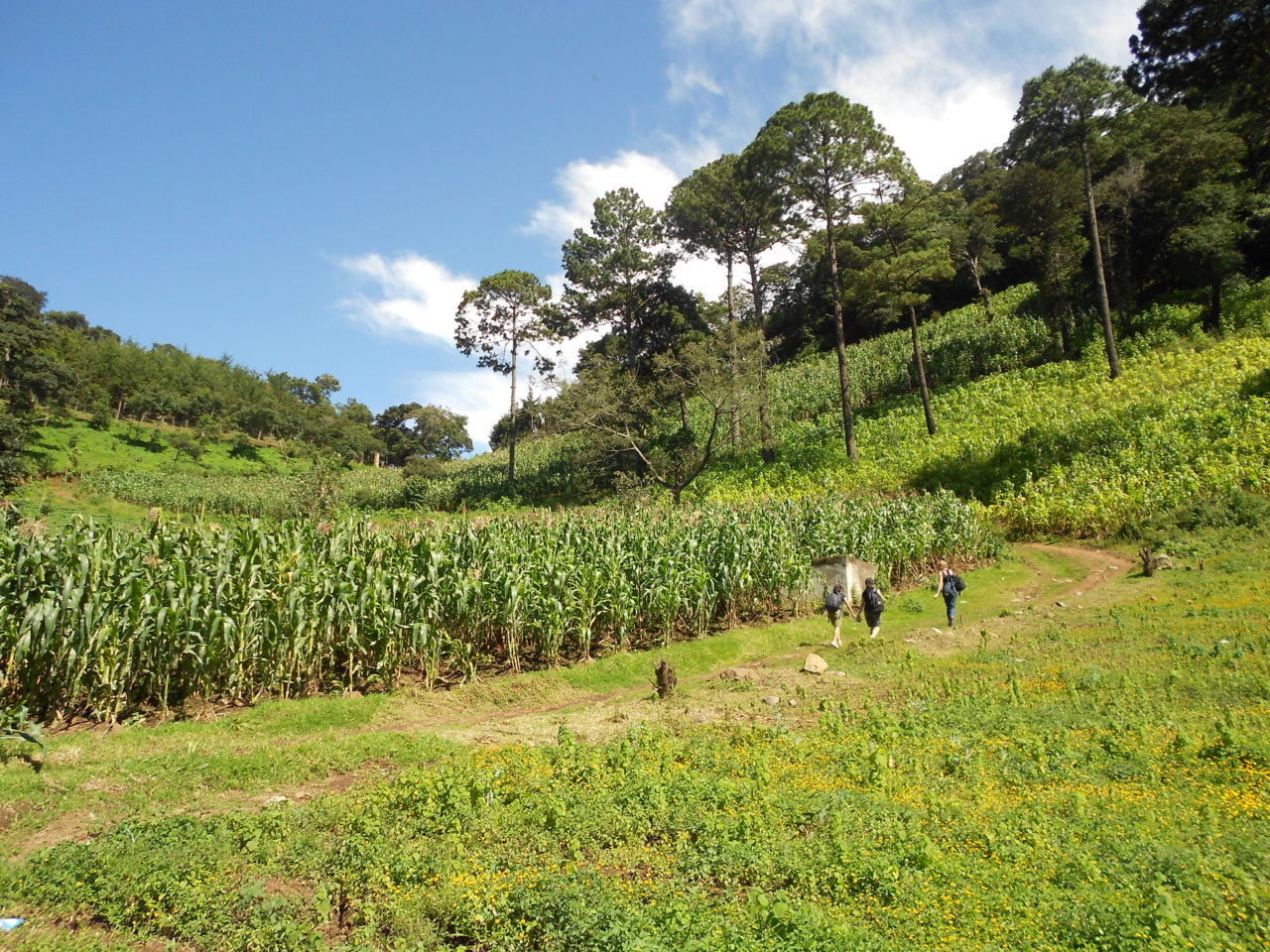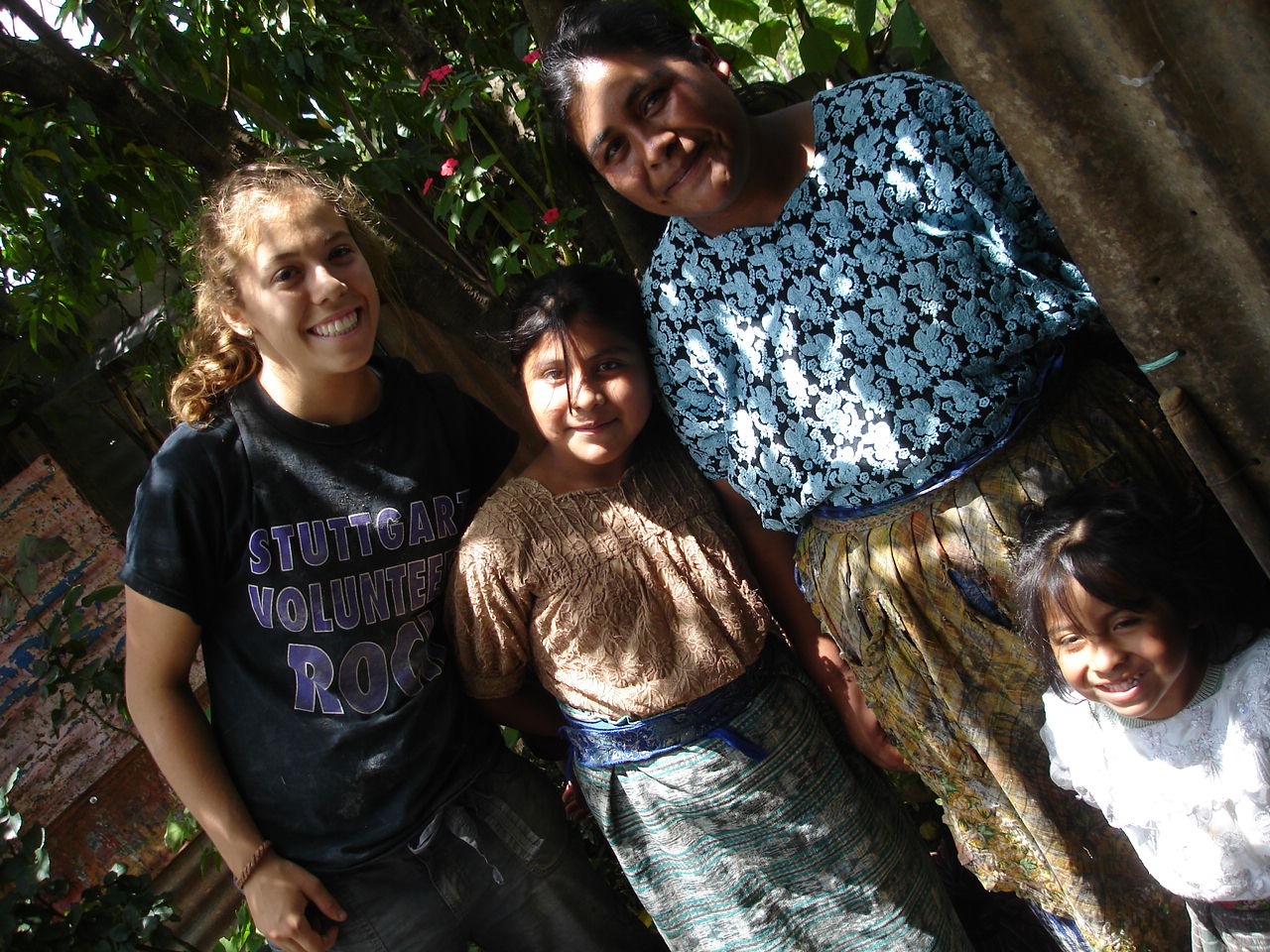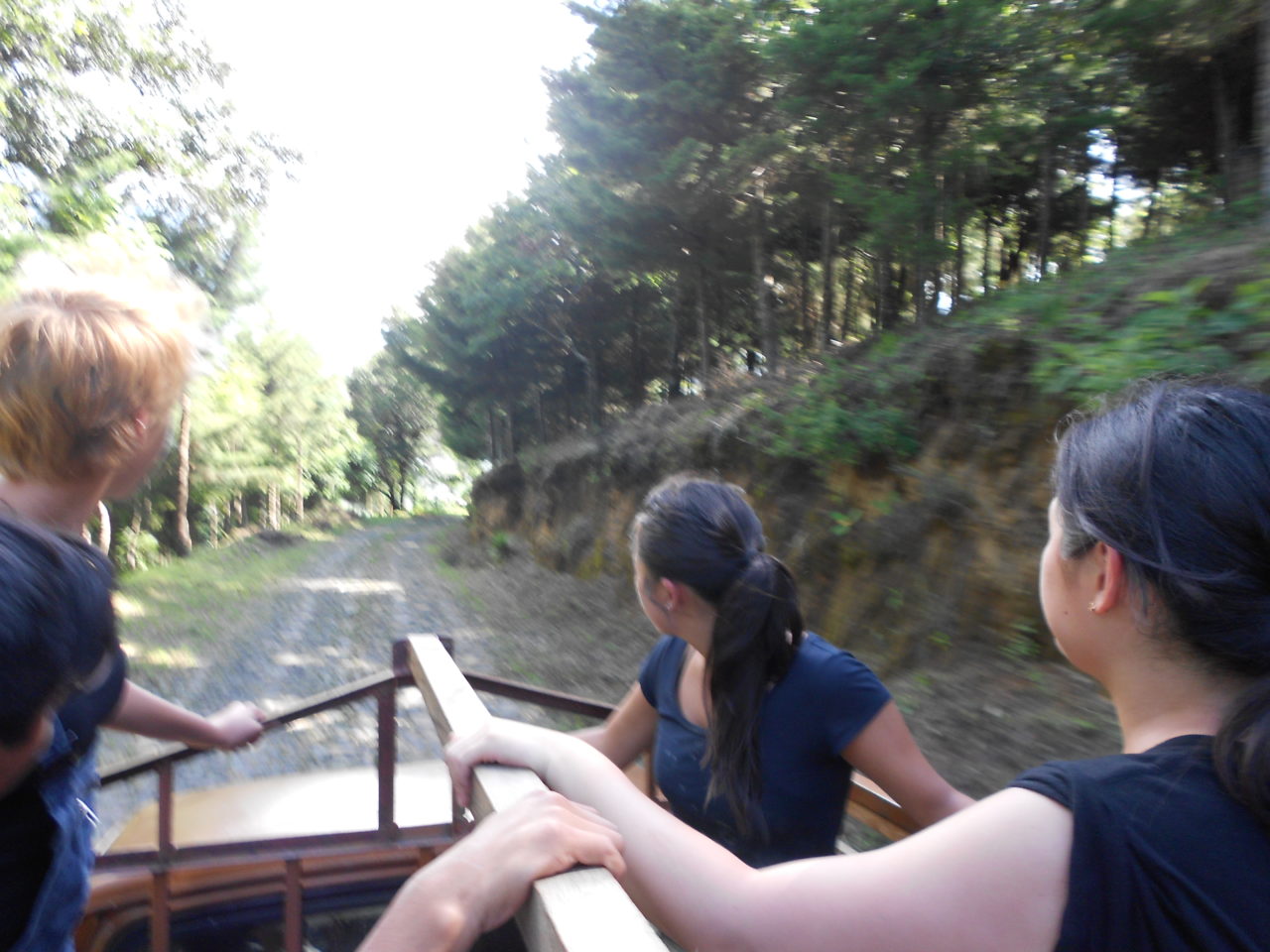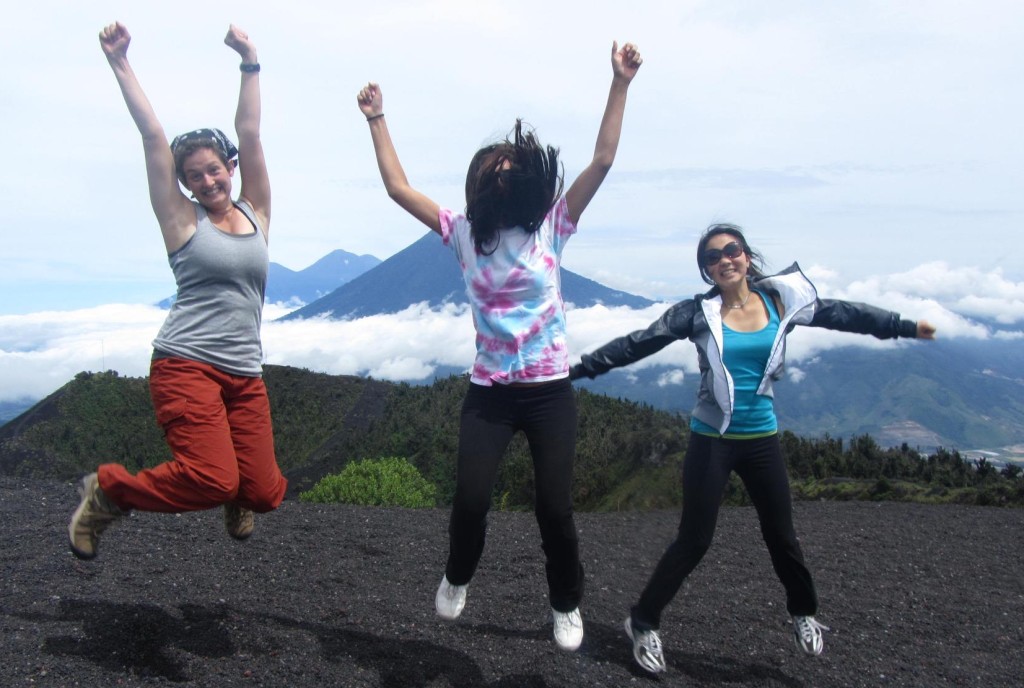(Excerpt from Emma’s blog. She volunteered with our house building project in Guatemala).
My life changed today.
Our new house-building location is located on the backside of a mountain overlooking Antigua.
The drive there was a treacherous 20 minutes passed any similar form of civilization. At the top we had to park the truck and walk down the backside because there was no road, only dirt trails carved by goats and stomping feet. It was walking back up this beaten trail after the day’s work that I the reality struck me. My thoughts today up that steep incline confirmed the feeling that had been growing curiously in my stomach all day.

The village is called “Mano de Leon.” In English it translates to “Lion Hand.” There are only 18 families in the entire village. Fortunately there is a school that serves the 40 children living there with one teacher, Diego.
As we breached the corn field surrounding the village like a makeshift barricade from invaders, the school yard was filled with scrawny, but smiling students running around. Their faces were painted with vivid colors that decorated the pairs of curious eyes that seemed to follow us wherever we went. The children were practicing for a play they planned on presenting later that day.

Continuing onto the construction site we were further welcomed by every type of dog a person could imagine. They led us directly into the family’s yard. There two women were waiting for us: one with long black hair and a once colorful skirt and brightly embroidered top that had surely faded over time, and the other with gray hair tied up in a bun and no teeth except the largest front one that protruded from the crease in her lips.
One was the mother, and the other the grandmother. I wish I could remember their names, it embarrasses me to have forgotten them already, but they were very indigenous. I expect this village was once very heavily influenced by Mayan culture. I do remember the boy. Hugo is 4 years old and too young to go to school yet. He likes cats and playing with his truck.

Carlos, our new head mason, explained [in Spanish] as the day wore on that the hundreds of stockpiled supplies — dozens of bags of cement, wheelbarrows, and hundreds of iron rods and cement blocks — were carried by the women and children of the village the day before all the way from the point where we had left the truck on top of the mountain. It amazed me.
Today we dug the trenches for the foundation of the house. It was extremely strenuous because there was no shade and the sun did not relax is rays one bit (I did get a small sunburn on my shoulders.).
When we broke for lunch Carlos walked us down to the communal washing well. There were a couple girls doing their laundry. They giggled so much when I tried to open the faucet properly. The water was cool and fresh and felt like a blessing in the heat.
For lunch the family offered us peaches from their tree as a humble sign of their thanks. We graciously accepted them and cut them up to share. They were delicious.
Once we started working again Diego appeared carrying more blocks. Soon an army of children came in a line carrying more blocks balanced on their heads. I stopped shoveling just so I could observe this ant-line of colorfully painted children laughing and smiling as they each dropped off a block and ran off to collect more. They kept coming and coming, no one complained.

Soon mothers were helping too, fathers, cousins, grandpas, baby brothers. It appeared as though the whole village was here helping this family. The sudden busyness drowned out the heat and I caught the energized atmosphere again, soaking it up. It was beautiful.
We finished the foundation trenches and packed up to go home. The walk up the mountain side was exhausting. My back ached from digging packed dirt and clay all day. My legs burned from squatting inside the trenches and lifting shovels full of dirt over the sides.
But I turned around to catch my breath, and I caught something much bigger. I caught the view of the entire village hidden in this little secluded valley. Surrounded by corn fields, orchards of peaches, rows of bean plants, and other herbs and greenery, this little village had no means of support aside from themselves. They grew everything, shared everything, and loved everything. This was the difference.
The other village we worked at seemed so sullen and depressed. It was as if they knew they were poor. But here, even farther away from other villages and the outside world, and even poorer than the previous village, they didn’t seem to know they were so poor because they were, in actuality, so rich.
The children glowed despite their skinny frames. The mothers gossiped good-naturedly despite the back breaking work of harvesting and cooking. Even the dogs barked with enthusiasm instead of with fear of not being fed. These people were happy.
It didn’t matter how poor they were. The fact that there were only 2 concrete buildings in the entire town and that the rest slept on dirt floors and played amongst chickens and stray dogs didn’t seem to phase them- they were happy to be alive in such a beautiful place with beautiful neighbors.
And so I thought- maybe this is the key. It doesn’t matter your financial situation. It is all relative anyways. That isn’t what makes one rich. As long as you surround yourself with wonderful people, all sharing the same thoughts, you will find a happiness. The rich are those that believe they are happy, not the ones that believe they have enough money.


